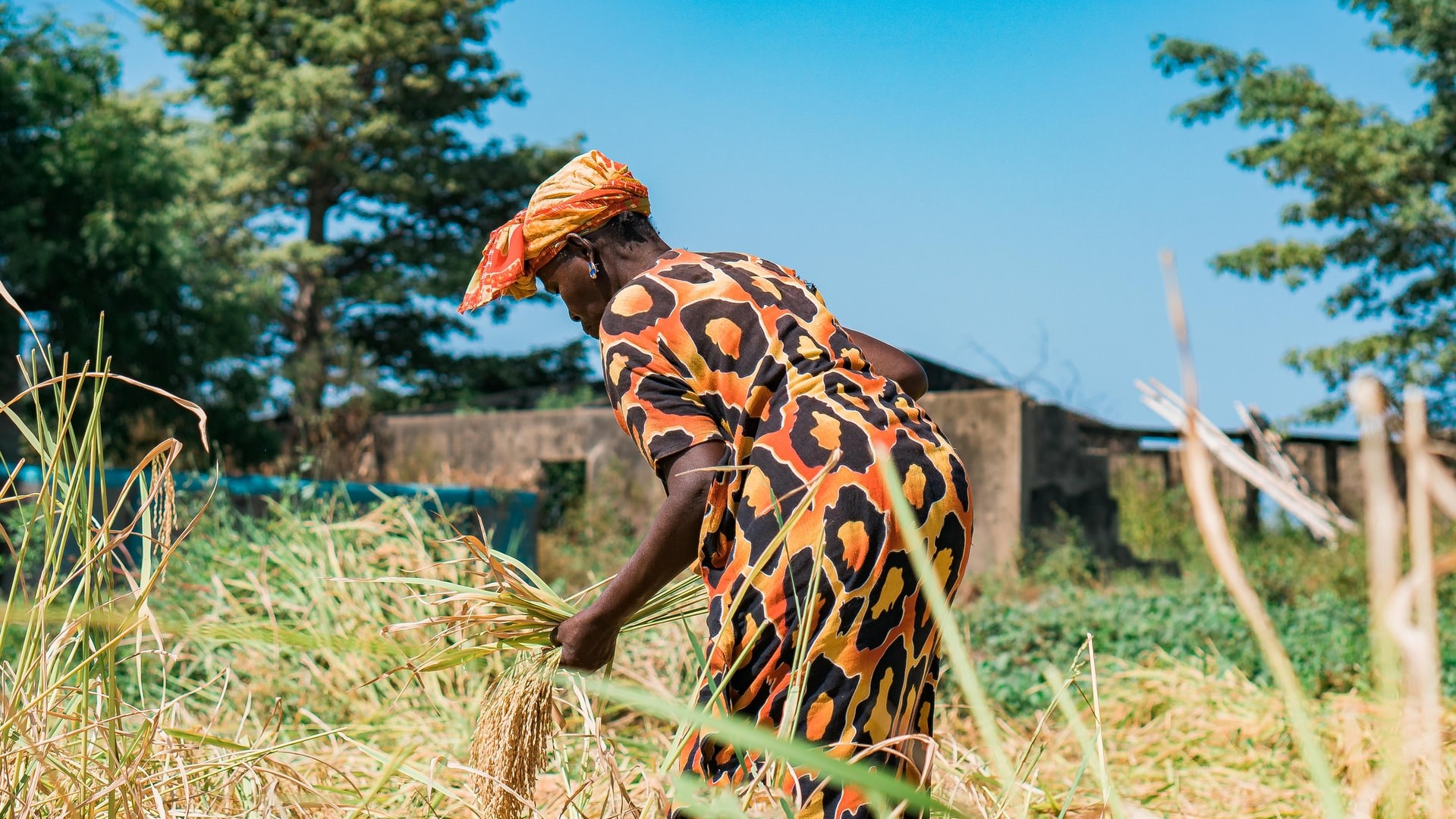“Good is not good enough” – climate responses struggle to meet escalating threats - IOE
Glasgow, 4 November 2021 – “We are only eight years away from the year 2030. The dire warning of the IPCC’s recent report is upon us. There is an urgent need to act, and ‘good is not good enough’. We need beyond good – we need transformative solutions.” This, according to Indran A. Naidoo, Director of the Independent Office of Evaluation (IOE) of IFAD, who moderated a side event at the COP26, in Glasgow.
The IFAD-led side event took place on 4 November 2021, under the auspices of the Twenty-Sixth session of the Conference of the Parties (COP26) to the UNFCCC. Entitled ‘Evidence-based Transformative Pathways to Build Climate Resilience in the Agricultural Sector’, the talk-show style event gathered insights from leading evaluation experts and senior international development actors, and blended them with civil society and government experiences. Panellists and speakers included Donal Brown, Associate Vice-President of the Programme Management Department of IFAD; S. Nanthikesan, Lead Evaluator at IOE; Andreas Reumann, Head, a.i, of the Independent Evaluation Unit at the Green Climate Fund; Sven Harten, Deputy Director of DEval; and James Gasana, international specialist in natural resource management and climate change.
Climate change disproportionately affects smallholder agriculture, which constitutes 75 per cent of the global farmland and provides more than 80 per cent of food consumed in the developing world. As such, strengthening climate resilience of smallholders is at the heart of IFAD’s mandate to eliminate poverty and food insecurity in rural areas.
“Smallholder farmers that have received [IFAD] support are 13 per cent more resilient than their counterparts – that represents 26 million people. To do that, we put dedicated resources right down to where they count, to the most vulnerable. Over the past three years, 35 per cent of our resources have gone to adaptation. In the next three years it will be 40 per cent”, explained Donal Brown.
To reap the benefits of these efforts and those of the international community at large, there is urgent need to go beyond effective measures and seek transformative climate change adaptation (CCA) solutions.
“We support access to knowledge, investing in and using the knowledge of local communities. We put communities at the centre of natural resource management, identifying adaptive solutions with communities, and that are owned by the communities. It’s not just about the hard infrastructure, it’s also about investing in the capacity of communities in managing these effectively. Key to this is collecting good data and evidence, and adjusting decisions in real time – adaptive management”, further stated Donal Brown.
Evaluative evidence shows the successes of these and other similar interventions, at local level.
“Yet, there remains a shortfall of broad knowledge-base of climate adaptation solutions, as these experiences are not translating into global success”, underscored Dr Naidoo.
Against this backdrop, the international experts presiding the side event explored the challenges and opportunities to pursue sustainable, viable solutions to build climate resilience. Discussions centred on the need to build an evidence-based knowledge base, to understand the characteristics of viable transformative solutions, and to prioritize the role of partnerships to build climate resilience rapidly.
“There is no single pathway to scaling up. There are common paths leading to successful scaling-up. One of the critical elements will be the commitment of governments, at all levels. A second path to emphasize is partnerships and coordination: coordination among donors, among government units, and partnerships with farmer organizations as well as other actors. Any path would require getting farmers on board to pursue climate change adaptation responses. No scaling up will work if there is no demand from the farmers. They need to be aware of the climate risks and they need to be familiar with the technologies of adapting. To change behaviour, there have to be favourable initial conditions that enable farmers to take the necessary risks, such as incentives and community support”, underlined S. Nanthikesan.
To date, multiple factors have stifled the pursuit of these pathways. James Gasana, Andreas Reumann and Sven Harten put the spotlight on the limited awareness of the importance of CCA to sustainable development among decision-makers, on the mutually reinforcing negative impacts of demographic changes and climate change, and on the shortfall of available climate finances. Of the USD 100 billion promised, only a fraction has been made available. How available finances are allocated is also a critical factor, as is the question of whether resources are reaching the most climate vulnerable countries, or whether these finances are directed at the most critical climate priorities of countries.
“Looking at ten years of spending of Germany’s bilateral cooperation, we found that if a country is vulnerable that increases the likelihood of it receiving funding. However, if a country becomes more vulnerable, that doesn’t mean that it will receive more funding”, observed Sven Hartman.
The time to overcome these limitations is overdue. Small-scale producers must be at the centre of climate change discussions as they are greatly underserved by climate finance. Bringing rural small-scale producers out of poverty and food insecurity will make positive, cascading contributions to meeting both the humanitarian and environmental goals of the 2030 Agenda. For this to happen, what we need is clear.
“We need to mobilize finance for adaptation. We need stronger partnerships. We need to institutionalize adaptation practices. And we need to bring the private sector into this picture”, concluded Donal Brown.
For further information, please contact Alexander Voccia at [email protected].
Follow us on:




